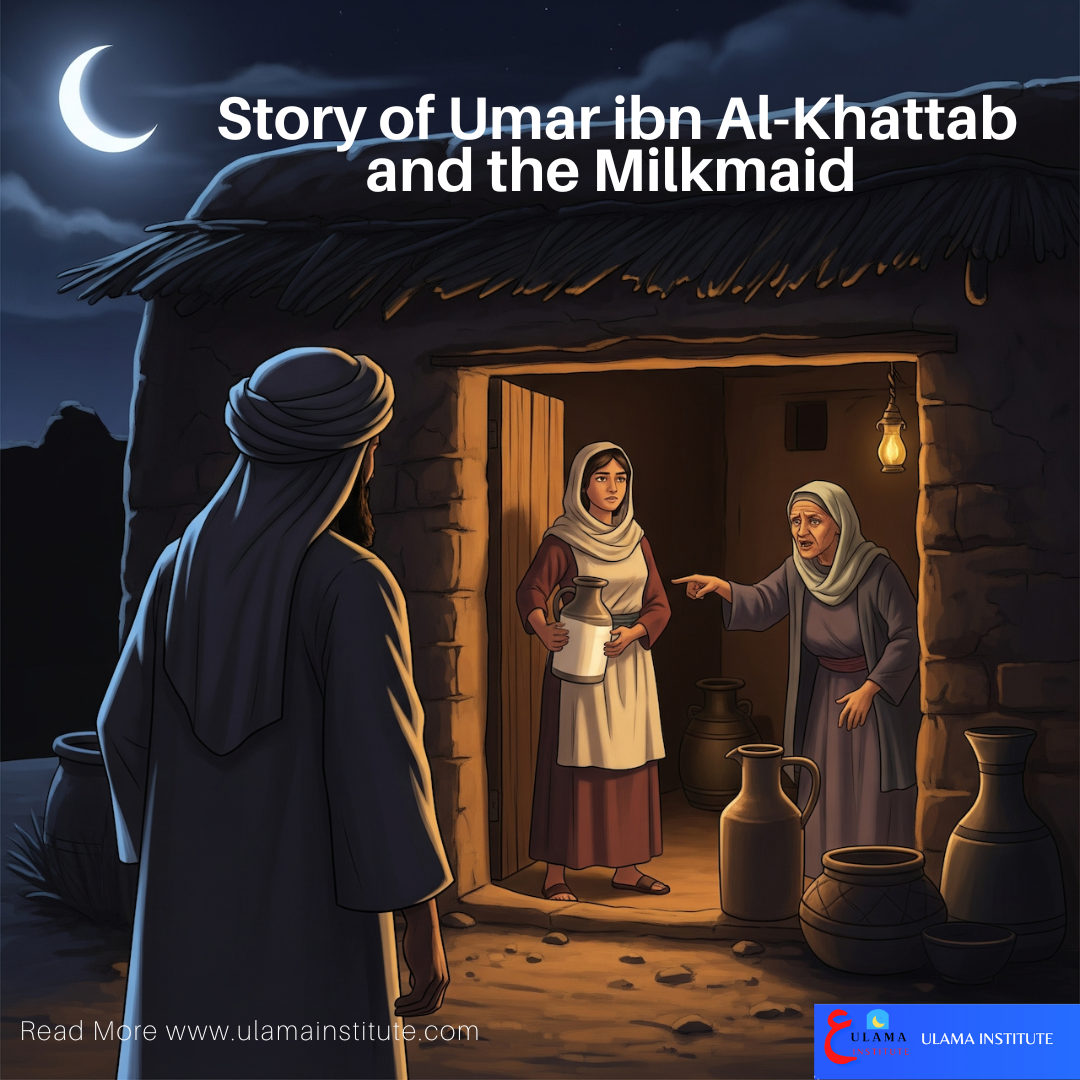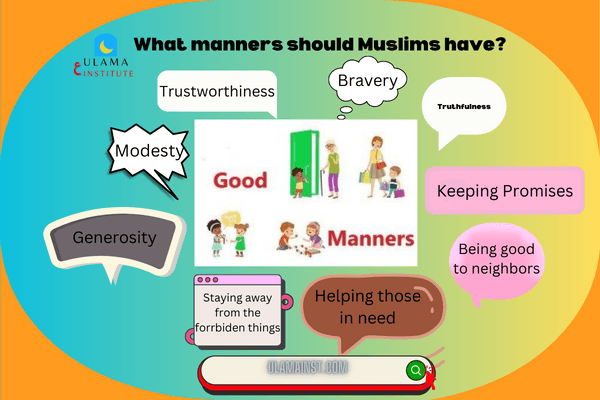Story of Umar ibn Al-Khattab and the Milkmaid – True Lessons in Honesty
The young girl in this story refused to obey her mother’s instruction to act in a manner that would displease Allah ﷻ .
►The Story of a pious Milk girl.
►The khaleefah marries his son to pious Milk girl.
►The fifth rightly-guided Khaleefah is one of the descendants of that son.
Story of Umar ibn Al-Khattab and the Milkmaid – True Lessons in Honesty
Umar ibn Al-Khattab’s Unique Way of Connecting with His People
The story of Umar ibn Al-Khattab and the milkmaid is one of the most famous moral tales in Islamic history. Umar, the second Rightly-Guided Khaleefah, had a unique manner of keeping in touch with people. He used to go out under the cover of darkness and mingle with the masses. This habit allowed him to ascertain their well-being and become familiar with the general condition of the Muslims.
On many occasions, Umar ibn Al-Khattab had outstanding experiences during these night walks. Those moments became widely shared as examples of his justice, humility, and compassion—qualities that made him one of the most respected Muslim leaders.
The Night Umar Overheard the Milkmaid’s Conversation
One night, the Caliph Umar ibn Al-Khattab walked amidst the people, observing their ways and listening to their complaints. He stopped and leaned against the wall of a very modest house to rest for a while.
It was in the middle of the night when Umar ibn Al-Khattab and his servant Aslam overheard a conversation between two women inside the house. A mother, who was a milkmaid, told her daughter to mix the fresh milk with water in order to increase its quantity and thus increase their profits.
The young girl refused, saying:
“Did you not hear what Umar has decreed today?”
The mother asked, “What did he decree?” The young girl replied:
“He commanded someone to declare in a loud voice that milk should not be mixed with water.”
The mother insisted:
“Get up and mix the milk with water, Umar cannot see you here!”
The girl then said words that have inspired generations of Muslims:
“If Umar does not see us, the Lord of Umar does.”
Umar ibn Al-Khattab’s Response to the Act of Honesty
Upon hearing this, Umar ibn Al-Khattab, the Islamic leader known for rewarding integrity, ordered Aslam to go to the house where this incident occurred and find out whether the two women were married.
Aslam returned with the report that the young lady was not married and that the other woman was her mother, who was also unmarried. Umar then called his sons and asked if any of them needed a wife. His sons Abdullaah and Abdurahmaan said they were already married. But his son ‘Aasim said he was unmarried and willing to marry the young woman.
Umar approved, and the two were married. From this righteous union came Umm ‘Aasim, who later became the grandmother of Umar ibn ‘Abd al-Aziz, often referred to as the fifth Rightly-Guided Caliph. He inherited the same piety and justice as his great-grandfather Umar ibn Al-Khattab and the honest milkmaid.
Moral Lessons from the Story of Umar ibn Al-Khattab and the Milkmaid
1. Leadership Requires Direct Connection
Like other inspiring stories of Umar ibn Al-Khattab’s leadership, this one shows the importance of a leader being close to the people, listening to them, and understanding their lives.
2. Obedience to Allah Above All Else
The young girl’s refusal to mix milk with water reminds Muslims that Allah’s command comes before the wishes of even beloved parents.
As the Prophet ﷺ said:
“لا طاعة لمخلوق في معصية الخالق” (أحمد)
“There is no obedience to the created in disobedience to the Creator.” (Ahmad)
3. Marriages Built on Truth Strengthen Society
Islamic history teaches that when marriages are based on righteousness and honesty—like that of ‘Aasim ibn Umar and the milkmaid—they benefit society for generations.
4. Honest Earnings Bring Blessings
The Prophet ﷺ said:
“من غش فليس مني” (مسلم)
“Whoever cheats does not belong to me.” (Muslim)
This Islamic moral story makes it clear that poverty does not justify dishonesty, and the end never justifies the means.
5. Righteousness Can Shape Generations
This union led to Umar ibn Abd al-Aziz, whose leadership is still praised today—showing how good deeds can have far-reaching effects.
Who was the milkmaid in the story of Umar ibn Al-Khattab?
She was a young woman in Madinah known for her honesty, refusing to mix milk with water despite her mother’s instruction.
What lesson does this story teach?
It teaches honesty, fear of Allah, responsible leadership, and that righteousness benefits future generations.
Who was Umar ibn ‘Abd Al-‘Azeez in relation to the milkmaid?
He was her great-grandson, known as one of the most just rulers in Islamic history.
Why did Umar walk at night?
To observe the condition of his people firsthand and address their needs directly.
How is this story relevant today?
It inspires honesty, moral courage, and the idea that good deeds can impact generations.







